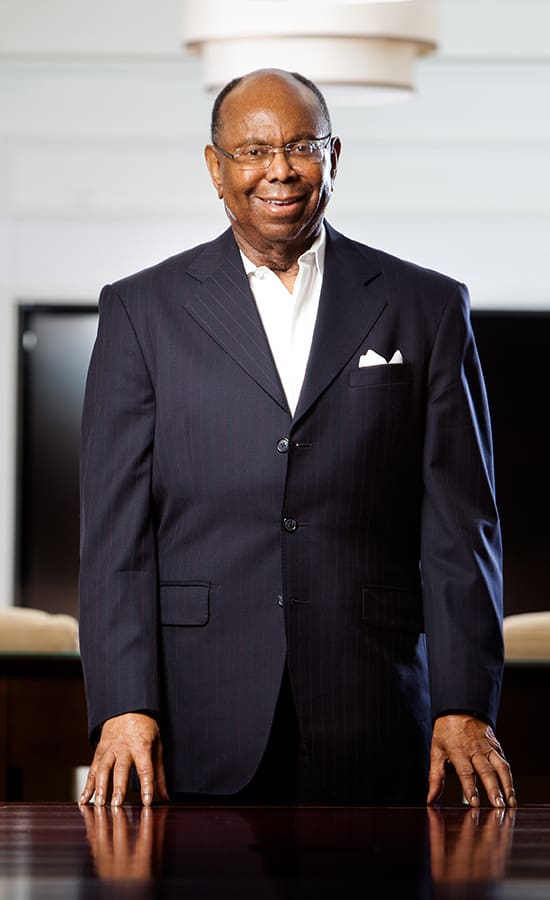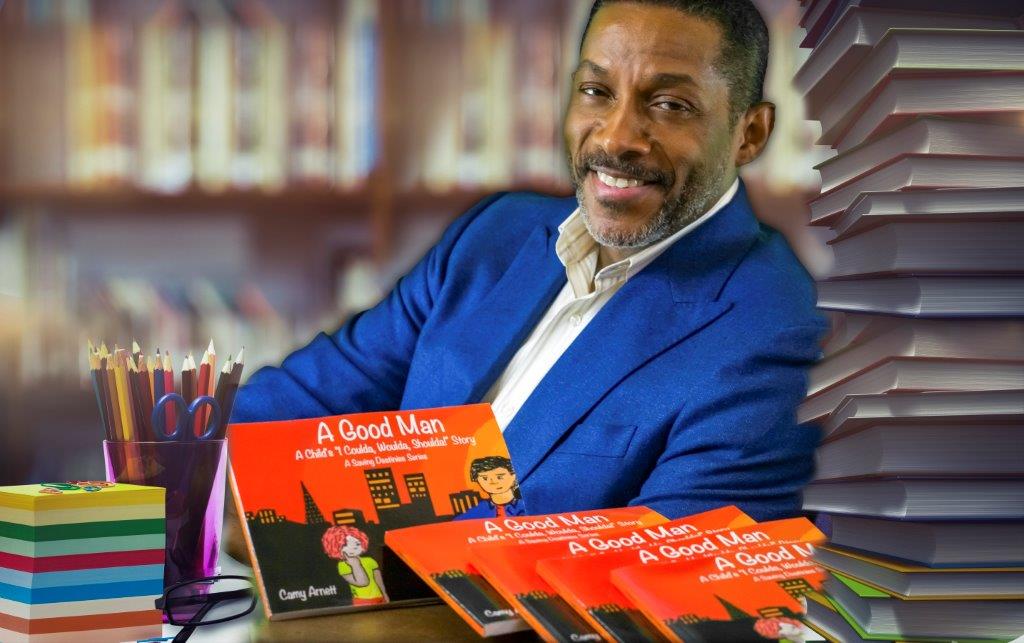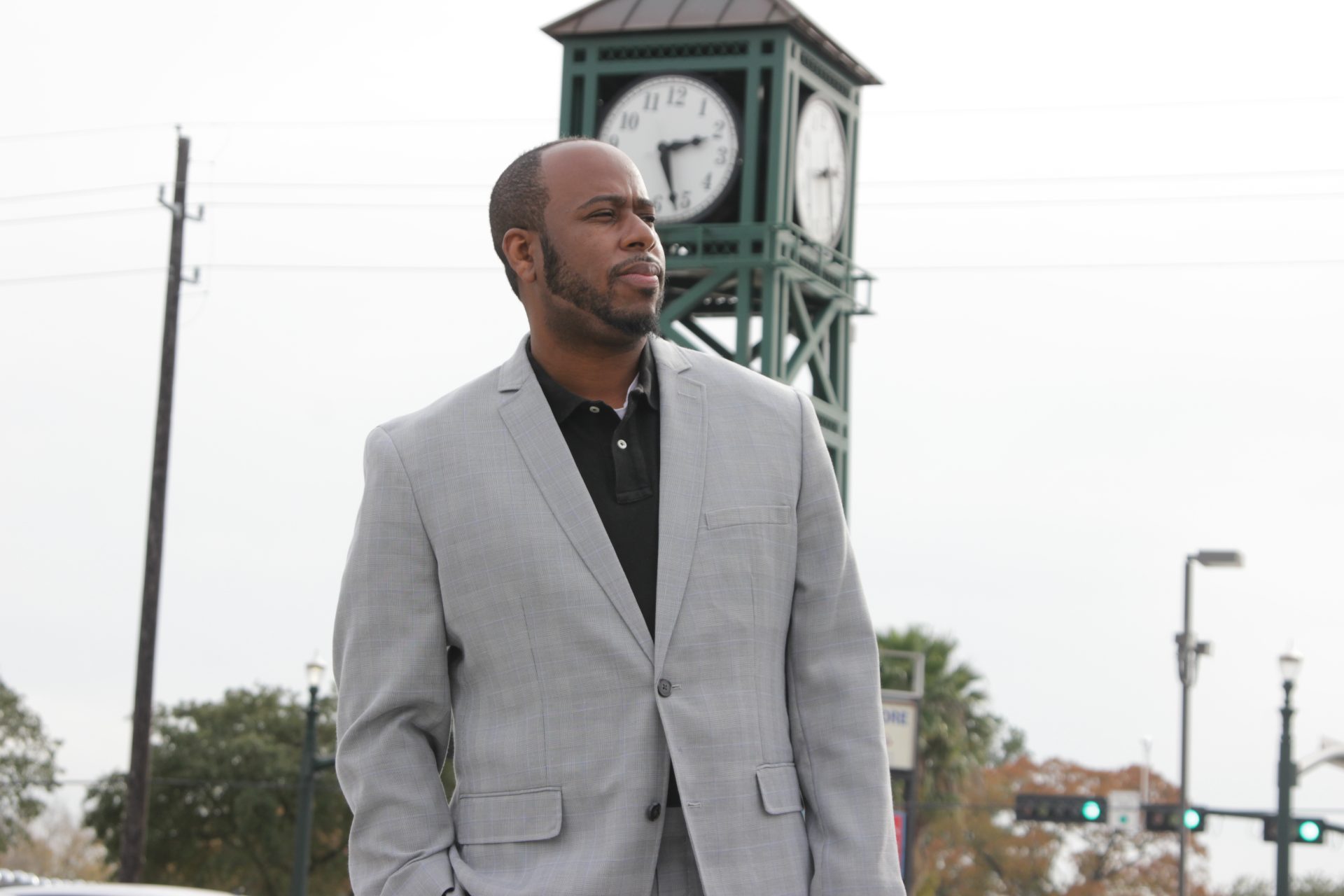
William F. Pickard, Ph.D. is chairman of Global Automotive Alliance, co-managing partner of MGM Grand Detroit Casino, CEO of Bearwood Management Company and co-owner of five Black-owned newspapers. A first meeting with the multi-titled multimillionaire is a breath of fresh air. He’s quite witty, disarming and very faithful. He shares without hesitation, he didn’t get this far in career and life without his faith.
According to his bio, Dr. Pickard’s 45-year entrepreneurial career first began as a McDonald’s franchisee in Detroit. Later in 1989, he founded an automotive manufacturing company and grew it into Global Automotive Alliance (GAA), a conglomerate of logistics and manufacturing companies with more than $1.5B in sales and eight plants in the United States and Canada. GAA currently services corporations such as Boeing, Mercedes-Benz, Ford, General Motors, Chrysler, Delphi, Johnson Controls, Starbucks, Home Depot and Merck Pharmaceuticals.
Pickard recently made a $1M pledge to the new National Museum of African American History and Culture in Washington, D.C.
He’s also engendering a new generation of entrepreneurs with his new book Millionaire Moves – Seven Proven Principles of Entrepreneurship which highlights vision/attitude, opportunity, relationships, talent/skill set, finance, failure and faith.
The book is a “relevant and riveting” look at his professional journey where he outlines the highs and lows as well as lessons learned from his uncle who was a bookie, colleagues who had his back and even his competitors.
See his interview below.
Why did you write the book?
I am a social worker by training. My first job was in social work at the Urban League in Cleveland and I worked with youth. I’ve always had an interest in education and young people. I was teaching at the University of Michigan School of Business and taught a class on entrepreneurship for 10 years. Over that time, I [experimented with topics] in the curriculum and lesson plan and these seven principles emerged. Once I did it, God stepped in – my mother passed away. As an only child, it was traumatic. I went to Alabama State and taught for two years. I never attended an HBCU or been on a Black college campus — at that time. I was heartened by the two extremes of students I met. Those who could compete at Michigan or Harvard and those who were like me, needed a little bit more help and encouragement. I take great pride in the fact that I went to a community college for three years. I wasn’t “traditional college material.” While at Alabama, I started working on this book and thinking about this student population and that’s how it evolved.
How did you evolve from being a social worker and teacher to become an entrepreneur yourself?
There is a God. I was a great social worker. I love social work, working with young people and working in the community. I worked in the NAACP for a couple of years. I had an opportunity to earn my Ph.D. I thought I would get a Ph.D., become a professor and get a barbecue joint on the side. I knew I wouldn’t be poor all my life. My grandfather believed in two-armed living. In other words, my uncles were school teachers. One was a wood shop teacher who on the side did cabinet making and walls. He had a side hustle. I thought I’d be a professor and have me a little business on the side. During that time, God stepped in and a McDonald’s became available to me. I was among the top 10 Blacks in America to have a McDonald’s franchise. That’s God. That’s Grace, that’s all it is.
How does your journey inform the principles in the book and keep your vision to produce this book at the forefront?
I always taught part-time somewhere, almost every semester. Teaching … I love young people. At McDonald’s whether you have a 17-year-old stealing your french fries, they keep you young, teaching you the latest dances the night before events like the Alpha ball or something like that. Education was a natural transition. Once I owned a few McDonald’s franchises, I got into automotive and then into casinos. There’s a Chinese proverb that says as one eats, the appetite becomes wetter. The more you consume, the more you have a passion and capacity to consume more. Once I knew how to do it, I could do it in my sleep because I learned people. You have to get everything done through other people; that was my gift. The real genius of my blessing is that when I left McDonald’s, I only had five restaurants. Yet, I ended up with 12. I believe strongly that God will order your steps. There is another force that orders our lives. If you will just listen and be still sometimes, it will unfold.
You developed those seven principles in your book early in your career. How are they relevant to today’s young entrepreneurs and millennials?
Excellent question. Is the Bible as relevant today as it was a zillion years ago? The Bible says without vision, the people shall perish. You will never be what you cannot see. I believe that your mind has the capacity to unfold what you visualize and what you verbalize. If you tell yourself negative things all day, you’re in for a long day. It sounds like pop psychology, but I believe in it. A great thing about the Internet is today, people can see all kinds of stuff. In my generation, we could see ourselves becoming a preacher, a teacher or a social worker because that’s all we saw with the exception of the pimp, the drug and numbers man. Look at Misty Copeland, my god, how did she become Misty Copeland when she only saw white ballerinas. There’s the gymnast, Simone Biles. How do you explain this?
If you asked me the most important of the seven principles in the book, I would say vision and attitude.
















